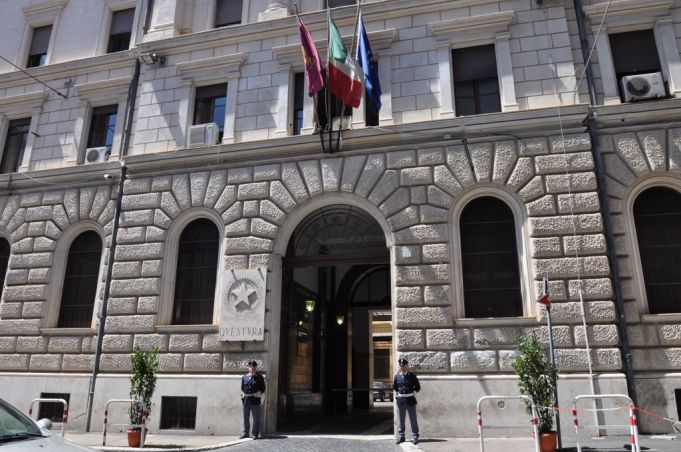Residency and citizenship for non-Europeans in Italy: How to obtain a visa and permesso di soggiorno in Italy.
Whether seeking the sites, culture and flavours of Italy or broadening working and business opportunities, approximately one and a half million foreigners enter Italy via various airports every month.Non-European Union citizens planning to come to Italy for short visits, business, tourism or study for a period not exceeding three months require a short-term entry visa, but are not required to apply for a residence permit. All visas are applied for at the Italian consulate in your country of origin. If you are planning to visit multiple destinations, apply for a short-term Schengen visa from the consulate of the country in which you plan to enter Europe. People entering on a tourism visa are not allowed to take up any form of employment during their three-month stay.
Short-term visas are divided into the following categories:
Tourism visa. This is valid for 90 days and allows you to enter Italy and travel through other EU countries (Schengen Zone) purely for tourism. You may not enter into any business transactions or take on any form of employment. You need proof of a return ticket and of accommodation, plus a letter from your bank stating you have sufficient funds to cover the trip.
Short-term business visa. This is valid for 90 days and allows you to conduct business meetings and enter into business contracts during the stay. You need proof of a return ticket, accommodation, funds and a letter from one or more Italian business you will be meeting with during the stay.
Short-term working visa. This is valid for 90 days and allows you to enter into work contracts which do not exceed 90 days. You need proof of a return ticket, accommodation, funds and a work contract from the company you will be working for, specifying the start and finish date of the work to be carried out.
People staying in Italy for more than three months are considered residents. This includes people who will work or transact business, students who wish to undertake a course in Italy, and persons who simply want to live in Italy.
Study visa. This is a separate category of visa allowing foreigners to enter Italy for study purposes. These visas are issued for one year and are renewable year on year. This visa does not permit students to work during their stay. Students must already be registered with the school, college or university where they intend to study and proof of registration and the means to pay fees and board and lodging must be submitted with the application. The educational institution must also provide a letter in which it undertakes to inform the authorities if the student decides to discontinue studies during the period for which the visa is issued.

The following categories of visa may be obtained from an Italian consulate before coming to Italy:
Up to six months for seasonal work or up to nine months for seasonal work in certain specific sectors requiring this extension.
Up to one year for a duly documented course of study or a vocational training course.
Up to two years for self-employment, open-ended employment and family reunification.
For long term visas the requirements are as follows:
Self employment. You must submit proof of qualifications in the field in which you wish to operate and proof of your income for the three years prior to your visa request.
Open-ended employment. The company or business for which you will be working must provide a contract that stipulates you will be employed by them on a full-time basis and the terms and conditions of your employment and related remuneration.
Family reunification. You have to provide proof of family ties and the family in Italy has to provide proof that you will reside with them and that they have the financial means to sponsor you.
Applying for these types of visa can take several weeks to complete, so it is advisable to apply well in advance of the departure date. On arrival in Italy, you must obtain a permesso di soggiorno. If it is your first time in Italy, you have eight days to apply. To obtain a residence permit you need:
The application form, which you can obtain at your local post office (see below).
Your valid passport or other equivalent travel document bearing an entry visa.
A photocopy of your passport or other valid travel document bearing an entry visa.
Four recent, passport-size photographs.
A €16 marca da bollo electronic revenue stamp (available at most tobacconists).
Documents supporting your request for the type of permit for which you are applying.
Depending on the category (working or non-working) and length of stay, the cost for a permit ranges between €80 and €200.
Applications may be submitted at the polizia dello stato or an application "kit" for the permesso di soggiorno may be requested from the local post office.The kit must then be returned to a designated post office which will process your request on your behalf at the cost of €30. It is important that the applicant keep a copy of the receipt issued by the post office. Within 20 days of receiving the permesso di soggiorno, the applicant must go to the ufficio anagrafe (registry office) at the comune (municipal offices) in which you wish to reside to obtain a certificato di residenza (residence certificate). The permesso di soggiorno is issued at the local police station (questura) but you must register with your comune as being a local resident.

Over and above obtaining residence, under Italian law, all non-EU citizens who request an Italian permesso di soggiorno for more than 12 months are required to sign an accordo di integrazione (integration agreement) either at the local prefecture (sportello unico per l’immigrazione) or at the polizia dello stato police station. By signing this, residents agree to achieve specific integration goals such as acquiring an adequate knowledge of the Italian language and of the Italian civil structure and culture. They need to accumulate a total of 30 credits. Simply by signing the agreement they will secure the first 16 points. The remaining 14 points must be earned over the next two years by taking classes or passing a test in Italian. Refusal to sign this agreement may affect any applications for the renewal of your permesso di soggiorno in the future.
Foreign citizens resident in Italy with a valid permesso di soggiorno have the same right as Italians to health care provided by the national health system, and are required to register with their local health department or azienda sanitaria locale (ASL).
At the end of your stay in Italy remember to cancel your residency at the comune of residence. It is important for tax, social security and pension reasons to be able to show when you have given up your residency in Italy.
Italian citizenship
Citizenship is based on the principle of jus sanguini blood relations and is normally granted if at least one of your parents is an Italian citizen. However, citizenship can be applied for also in the following instances:
If a non-EU citizen marries an Italian they may apply for citizenship after 24 months of residence and marriage. If the marriage results in the birth of children this period is reduced to 12 months.
Non-EU citizens qualify to apply for Italian citizenship if they have any Italian blood relations, for example grandparents, aunts or uncles, after three years of continuous residency in Italy.
Any other non-EU citizen can claim citizenship after 10 years of residency in Italy.
All applications for citizenship are made through the local prefecture, and your local comune can assist you with the required documentation. (See related article).
Studio Annino
Readers are welcome to send suggestions for future topics in this series either to editorial@wantedinrome.com or directly to avv.annino@libero.it.
Studio Legale Annino, tel. 0696153083, www.annino-lawfirm.com. This article was published originally in the June 2015 edition of Wanted in Rome magazine.





















